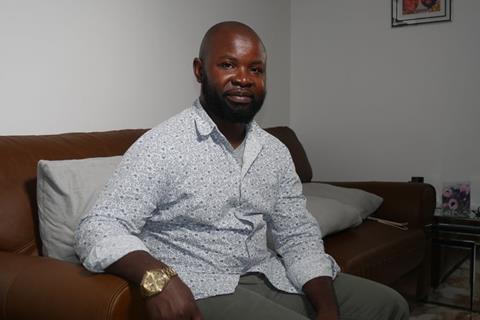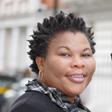Felix Ngole won a landmark legal case against the University of Sheffield in 2019 after they expelled him for his views on sexuality and marriage. Now he has had a job offer withdrawn for the same reason. His wife shares their story

The story of Felix Ngole vs the University of Sheffield started as a prophecy. I was meditating on the word of God when I heard the Holy Spirit say that Felix would be used by God to change policies in this country.
I laughed out loud, saying: “Lord, I know this is not me making this up because my husband is not interested in politics.” I heard it two more times. I shared the word with Felix. We could not comprehend how this could ever happen, so we prayed and continued with our lives.
The University of Sheffield story
A few years later, Felix started studying for his Masters degree in social work. However, in 2016, he was excluded from Sheffield University after taking part in an online debate about same sex marriage. Someone asked him what the Bible says about homosexuality. He copied and pasted Bible verses on the topic and, when he felt the conversation became hostile, he left.
A couple of months later, he was called for a disciplinary meeting. He was told that his comments on Facebook were “not deemed appropriate for someone entering the Social Work profession” and was excluded him from his course. With the help of the Christian Legal Centre, a four-year legal battle commenced. It wasn’t easy, especially because we struggled to gain employment as a result. My husband finally won in the Court of Appeal and his case has become a case law due to its significance.
My husband replied that he has never, and would never, discriminate against anyone
The judgement was emphatic and unanimous: “The University wrongly confused the expression of religious views with the notion of discrimination. The mere expression of views on theological grounds (e.g. that ‘homosexuality is a sin’) does not necessarily connote that the person expressing such views [the Claimant] will discriminate on such grounds. In the present case, there was positive evidence to suggest that [Mr Ngole] had never discriminated on such grounds in the past and was not likely to do so in the future (because, as he explained, the Bible prohibited him from discriminating against anybody).”
My husband eventually returned to university and graduated. He is now a registered social worker.
Touchstone Leeds
Last year, he came across a job for a hospital discharge support worker. Felix applied to Touchstone Support Leeds and, by God’s grace, was shortlisted. He gained the highest marks of any candidate, including on an equality and diversity assessment, and was offered the role, which he gladly accepted. However, a few weeks later, the offer was rescinded.
When Felix asked why, he was told they had googled him, and found out that he holds strong Christian views on marriage and sexuality and, as a result, posed a “significant risk” to the organisation’s patients and reputation. They advised that they would only re-consider employing him if he gave assurances that he would “embrace and promote” Touchstone’s values, “including the promotion of homosexual rights”.
My husband replied that he has never, and would never, discriminate against anyone, sending them a copy of the ruling from the Court of Appeal, where the judges clearly stated as such. He explained that he had extensive experience of supporting vulnerable individuals from all backgrounds, including the LGBT community, and would never force his views on anyone. But he made it clear that employers could not discriminate against Christian beliefs and force individuals to promote an ideology that goes against their conscience in the workplace. After a few email exchanges, he was invited to come in for a discussion.
The ‘discussion’ was a two-hour interrogation about his Christian beliefs, particularly on LGBT issues. This was in contrast to his first interview, which he felt was very respectful towards his faith. To make matters worse, Felix was told that should he attend their diversity training, he would only be permitted to share views ‘allowed’ by the employer. He viewed this as a ban on Christian free speech, which is unfair and disproportionate.
After his second interview with Touchstone, he received an email from the deputy CEO, Kathryn Hart, stating that the job offer had been formally withdrawn. Felix felt that, if this was left unchallenged, it would have severe implications for Christians with orthodox views on marriage and sexuality everywhere.
A bigger case
I came to realise that perhaps this case is bigger than the first case against the University of Sheffield. Felix reached out to the Christian Legal Centre, who immediately took up his cause. A hearing was scheduled for July 2023.
Employers should not force individuals to promote an ideology that goes against their conscience
On the day of the hearing, we prayed that the Lord, who gave us justice the first time round, would do the same again. In court, Touchstone unexpectedly introduced the ‘minority stress theory’ (which argues people who are minorities experience disproportionate distress when they encounter ideas which are adverse to their beliefs) into their defence. As such, the case was adjourned until April 2024 so that expert witnesses could be called. It is the first time that this theory will be tested in a UK court.
I believe that Felix was called by God for such a time as this, to highlight this issue and seek justice for all Christians who are being excluded because of their belief in the traditional view of marriage and sexuality according to God’s word. My husband understands his calling and will not be intimated by what the world says. He has made up his mind to follow Jesus and honour and obey him in all that he has been called to do. Please continue to pray for us.


































No comments yet